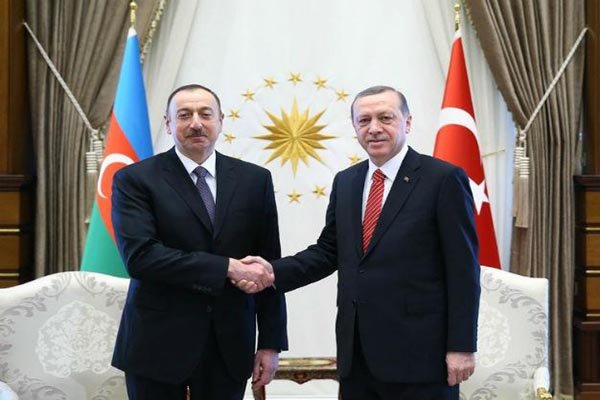Speaking in an interview with the website of the Strategic Council on Foreign Relations, Dr. Ahmad Kazemi said that the recent trilateral meeting of the Presidents of Armenia, the Republic of Azerbaijan, and Russia in Moscow seemingly did not pay attention to the legal status of Karabakh, prisoners of war and the region’s cultural heritage. He added: A statement issued after the Moscow meeting did not make any reference to the aforementioned cases.
Saying that the only point mentioned in the Moscow statement was the issue of transit, he noted: According to the four-point statement, it has been agreed to form a working group at the level of the deputy prime ministers of the three countries and the working group should offer the outlines of the plans and measures for the development of the region’s transportation and the connection between the Republic of Azerbaijan, Armenia, Nakhchivan, and Turkey by January 30. Sub-working groups should be set up by the working group to finally present the plans to the presidents of the three countries by March 1.
The international law expert stressed that the Republic of Azerbaijan and Turkey are trying to establish a corridor in the town of Magri in the south of Armenia. This shows that, as some prominent Turkish officials and figures have suggested, the creation of a corridor from Turkey to the Republic of Azerbaijan via the south of Armenia is as important to them as Karabakh itself.
The analyst of the Caucasus affairs added: There is not much information about the details of that corridor; but talks between officials of the Republic of Azerbaijani and Turkey, as well as concerns raised by some Armenian officials, including the president and other Armenian officials, show that Turkey and the Republic of Azerbaijan have sought to give a corridor to Armenia through Magri and Armenia’s connection with Russia and Iran, especially in the railway dimension, through the Republic of Azerbaijan.
Pointing to the strong criticism of the Armenian people addressed to their prime minister, and efforts to prevent him from visiting Moscow, he said: Such an agreement, if implemented, would not only remove Armenia from its geographical isolation but also all the Armenia’s transportation capacity will be put at the disposal of the Republic of Azerbaijan and Turkey and would make Armenia dependent on those two countries.
Political-security considerations
Saying that in the November 9 agreement in Moscow there has been no mention of the location where the transport corridor should be built, Kazemi explained: Naturally, there are different routes and one of them could be through the Karabakh region itself to Yerevan. Because the distance from Yerevan to Nakhchivan is about 40 km and very short; when the Republic of Azerbaijan insists on the path of “Magri”, it seems that there are political, security, and geopolitical targets behind this issue.
According to the expert on the Caucasus affairs, the Republic of Azerbaijan and Turkey seek to provide a geographical connection to “Pan-Turkism” through Armenia, and this is in line with the plans and targets pursued by some supra-regional powers such as the United States and Britain.
The author of the book “Pan-Turkism and Pan-Azarism” also noted: Such a plan is naturally against Russia, and it seems that Russia has made a miscalculation in discussing the geographical connection of Pan-Turkism through the Magri corridor; because in the eyes of the rivals of Russia, the United States, and Britain, connecting the Pan-Turkism geographical line is a project that could be used for decades not only against some countries in the region but also to contain Russia because of its Turkic and Tatar regions, as well as China because of its Uyghur-populated regions.
Kazemi added: It should be considered that any plan that is not in line with regional realities, that is to say, instead of using the natural potentials of the region to create convergence, pursue geopolitical changes with political and security targets, naturally cannot be approved by all countries in the region.
Stressing that trans-regional players are seeking to use the second Karabakh war to pursue their objectives in the region, he said: The United States, Israel, and Britain are trying to use the Karabakh conflict to have a military presence in the region and at the same time, they can create a new center of insecurity against their enemies and rivals by inciting ethnic issues.










0 Comments